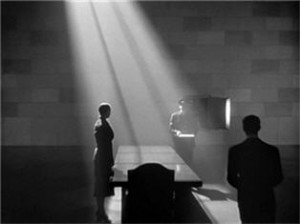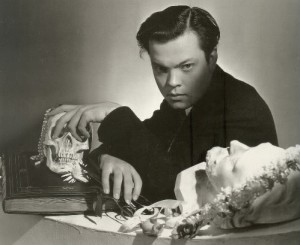The Battle over Orson Welles
From Cineaste 22, no. 3, 1996; reprinted with further comments in Discovering Orson Welles. — J.R.
Biographies of Orson Welles reviewed in this article:
Orson Welles: The Road to Xanadu, by Simon Callow (New York: Viking, 1995). 640 pp.
Rosebud: The Story of Orson Welles, by David Thomson (New York: Alfred A. Knopf, 1996). 461 pp.
Orson Welles, revised and expanded edition, by Joseph McBride (New York: Da Capo, 1996). 243 pp.
Two prevailing and diametrically opposed attitudes seem to dictate the way most people currently think about Orson Welles. One attitude, predominantly American, sees his life and career chiefly in terms of failure and regards the key question to be why he never lived up to his promise — “his promise” almost invariably being tied up with the achievement of Citizen Kane. Broadly speaking, this position can be compared to that of the investigative reporter Thompson’s editor in Citizen Kane, bent on finding a single formula for explaining a man’s life. The other attitude — less monolithic and less tied to any particular nationality, or to the expectations aroused by any single work — views his life and career more sympathetically as well as inquisitively; this position corresponds more closely to Thompson’s near the end of kane when he says, “I don’t think any word can explain a man’s life.” Read more


